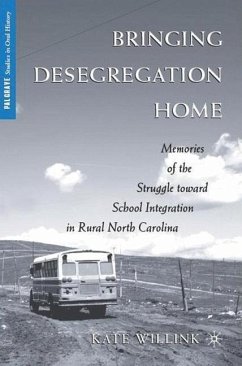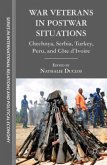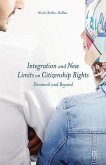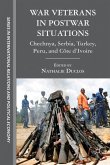"This book elaborates on the ever-present question of the true impact of school desegregation. The experience of implementing the decision in rural North Carolina is made so real by using oral history interviews with six residents, black and white, who were part of the process. The author has done an amazing amount of research and will set us to thinking again what that decision really accomplished." - Constance Curry, Author and Activist, Atlanta, Georgia
"Almost as if democracy were a hologram, collective memories on race and public education in the rural south shimmer into new focus. Each individual produces stories that seem detailed and complete - yet there are many such sites in this compelling work on the segregated nature of racial memory and social inequality." - Carol Stack, Author of Call To Home and All Our Kin
"This is raw, rich, and real. In a fascinating and refreshingly accessible account of place, memory, blackness, and whiteness, Willink skillfully draws out the honest, textured, and often humorous voices of individuals as each reveals, remembers, and reasons diverse - often divergent - lived experiences during desegregation. Students and scholars will benefit from reading this book." - Karla Slocum, Author of Free Trade and Freedom: Neoliberalism, Place and Nation in the Caribbean
"In this absorbing study, Willink has recorded memories from disparate sectors of the community, probed beneath their surfaces for illuminating insights, employed social theory to provide context, and, as a self-reflective scholar,critiqued her own role and reactions in the oral history process.Her workis a valuable contribution to the histories of civil rights and racial struggles, education, and social change in rural communities." - Jo Ann O. Robinson,Author ofEducation as My Agenda: Gertrude Williams,Race, and theBaltimorePublic Schools
"Almost as if democracy were a hologram, collective memories on race and public education in the rural south shimmer into new focus. Each individual produces stories that seem detailed and complete - yet there are many such sites in this compelling work on the segregated nature of racial memory and social inequality." - Carol Stack, Author of Call To Home and All Our Kin
"This is raw, rich, and real. In a fascinating and refreshingly accessible account of place, memory, blackness, and whiteness, Willink skillfully draws out the honest, textured, and often humorous voices of individuals as each reveals, remembers, and reasons diverse - often divergent - lived experiences during desegregation. Students and scholars will benefit from reading this book." - Karla Slocum, Author of Free Trade and Freedom: Neoliberalism, Place and Nation in the Caribbean
"In this absorbing study, Willink has recorded memories from disparate sectors of the community, probed beneath their surfaces for illuminating insights, employed social theory to provide context, and, as a self-reflective scholar,critiqued her own role and reactions in the oral history process.Her workis a valuable contribution to the histories of civil rights and racial struggles, education, and social change in rural communities." - Jo Ann O. Robinson,Author ofEducation as My Agenda: Gertrude Williams,Race, and theBaltimorePublic Schools








